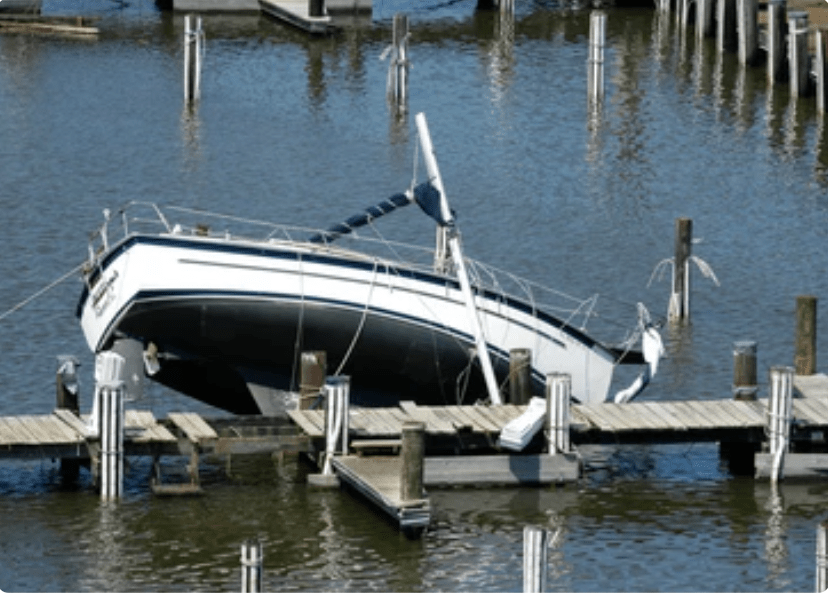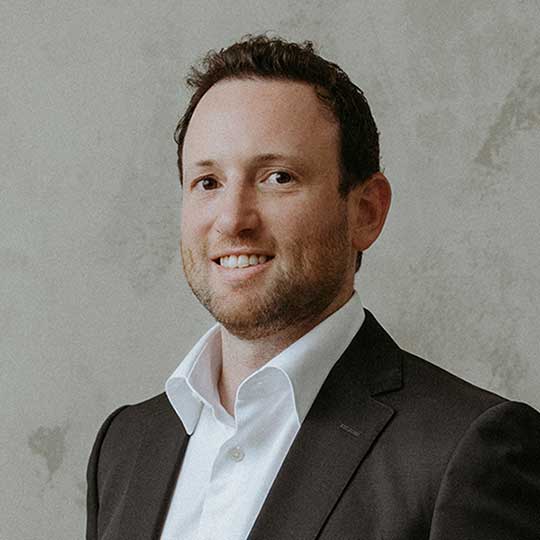Aug 13, 2025 in News Legal News
Legal News: Boating Accidents in Ontario: Who’s Liable When Fun Turns Dangerous?

Understanding Legal Liability and Compensation After a Boating Accident in Ontario
Ontario’s lakes, rivers, and scenic waterways are a summertime tradition. From Muskoka to Georgian Bay, boating offers a chance to unwind, reconnect with nature, and make lasting memories with family and friends. But when a day on the water takes a turn, the consequences can be life-altering.
Boating accidents often result in serious injuries or even fatalities—and figuring out who’s legally responsible isn’t always straightforward. Insurance coverage, liability rules, and compensation options vary widely depending on the circumstances.
In this article, we break down the laws around boating accidents in Ontario, who may be held accountable, and how a skilled personal injury lawyer in Toronto can help you through the aftermath.
Boating Accidents in Ontario: A Rising Concern
According to Canadian RedCross, every year, hundreds of boating incidents are reported across Canada—many in Ontario, home to the country’s most popular lakes and cottage communities. Sadly, many of these accidents are preventable. Impaired boating, excessive speed, and operator inexperience remain among the top contributing factors.
What makes boating accidents especially dangerous is the environment itself. Unlike car crashes, victims often face immediate threats like drowning, hypothermia from cold water, or delayed rescue—especially in remote areas.
In 2022, the Lifesaving Society of Canada reported a sharp increase in drowning deaths tied to recreational boating in Ontario. This reinforces the need for stronger safety measures and public education.
Understanding who’s liable in these cases is key—not just for legal reasons, but to help victims and their families find closure, support, and compensation.
Who Can Be Held Liable in a Boating Accident?
Determining fault after a boating accident isn’t always simple. It often involves multiple parties, shared responsibility, or third-party equipment issues. Here’s a look at who may be legally accountable:
1. The Boat Operator
The operator is legally required to drive safely and follow boating regulations. That includes observing speed limits, using proper lighting at night, and avoiding dangerous behaviour like weaving through traffic or jumping wakes. If the operator was distracted, intoxicated, or untrained, they can be held responsible for any resulting injuries or damages.
2. The Boat Owner
If the boat owner allows someone unfit to operate their vessel—such as someone who’s impaired or unlicensed—they may be liable for what happens. The owner could also be at fault if the boat wasn’t properly maintained, such as faulty brakes, worn-out parts, or missing safety equipment. Liability may apply even if the owner wasn’t present during the accident.
3. Manufacturers or Maintenance Providers
Some boating accidents are caused by equipment failures, like defective fuel systems, steering columns, or lights. If poor manufacturing or negligent repair contributed to the crash, the company that made or serviced the boat could be held accountable.
4. Rental Companies or Tour Operators
Rentals are common on long weekends and vacations—and they carry legal responsibilities. These businesses must ensure their boats are safe, come equipped with the required gear, and that renters receive safety briefings. Renting to underage or unlicensed individuals can lead to serious liability.
Tour operators have additional duties: they must supervise guests, communicate risks, and follow safety protocols at all times.
Common Causes of Boating Accidents in Ontario
While every accident is different, certain factors come up again and again on Ontario’s waters:
Operator Inexperience or Distraction
Many recreational boaters have little or no formal training. Distractions like texting, drinking, or failing to recognize navigation markers can lead to collisions or capsizing.
Impaired Boating (Alcohol & Drugs)
More than 40% of boating deaths in Canada involve alcohol. The law treats impaired boating the same as drunk driving—with serious consequences including fines, loss of license, or jail time.
Speeding
Ontario’s lakes often have posted speed limits, especially near cottages, docks, and swim zones. Ignoring these can lead to violent crashes, often resulting in traumatic injuries like broken bones, spinal damage, or even amputations.
Equipment Failure
Missing safety tools like life jackets, flares, or fire extinguishers can delay rescue. Mechanical failures—dead batteries, engine trouble, or steering issues—also pose serious risks.
Poor Weather or Water Conditions
Ontario’s weather can change quickly. High winds, fog, and waves can overwhelm even experienced boaters. It’s the operator’s duty to check forecasts and respond appropriately.
What Should You Do After a Boating Accident?
If you’re injured—or a loved one is—knowing what to do next can make all the difference.
- Call for help immediately using a marine radio or cellphone.
- Get everyone to safety, away from the water or the damaged vessel.
- Seek medical care, even if injuries aren’t obvious—internal injuries and head trauma may not show up right away.
- Document the scene with photos, note weather and water conditions, and collect contact info from witnesses.
- Report the accident to police and, if serious, to Transport Canada.
- Speak with a personal injury lawyer or boating accident lawyer who understands boating laws in Ontario.
Acting quickly helps preserve critical evidence—and improves your chances of receiving fair compensation.
Legal Compensation for Boating Accident Victims
Victims often face long recoveries—physically, financially, and emotionally. A personal injury claim can help cover:
- Medical expenses and rehabilitation
- Loss of income or future earning ability
- Pain and suffering
- Loss of enjoyment of life
- Assistive devices, home care, or out-of-pocket costs
Keep in mind: unlike car accidents, boating injuries don’t fall under Ontario’s Statutory Accident Benefits Schedule (SABS). That’s why working with a knowledgeable Boating Accident Lawyer in Toronto is so important.
For more on how compensation limits apply, visit our blog on compensation limits in Ontario injury claims.
Cottage Country Boating Bans and Legal Implications
Ontario’s cottage country isn’t just a summer retreat—it’s also becoming a focal point for boating regulations. As boating activity increases, several municipalities have introduced rules to reduce risks on local waters. These may include:
- Speed limits
- Size or horsepower restrictions
- In some cases, outright bans on certain types of boats
If someone breaks one of these local laws and causes an accident, it can strengthen the case for negligence—even if the operator wasn’t acting recklessly otherwise. These regional bylaws can play a major role in determining liability.
Compassionate and skilled, Neinstein’s Toronto personal injury lawyers guide you through recovery while fighting for maximum compensation on your behalf.
To learn more about how local boating rules can affect personal injury claims, check out our blog on cottage-area boating laws.
How Boating Accidents Are Legally Similar to Car and Motorcycle Claims
While boating accidents happen on the water, the legal process often looks a lot like motor vehicle claims. Victims may suffer from:
- Broken bones
- Traumatic brain injuries (TBI)
- Spinal cord injuries
- Psychological trauma, including PTSD
Many survivors experience flashbacks or anxiety—especially if they nearly drowned or witnessed a fatality. These emotional injuries are very real and must be considered during legal proceedings.
Like in a motorcycle or car accident, boating claims typically require proving three things:
- Negligence – Someone acted carelessly
- Causation – Their actions caused the accident
- Damages – You suffered losses as a result
Insurance companies often try to shift blame or minimize the seriousness of injuries. That’s why it’s so important to have a legal team experienced in both watercraft liability and serious injury claims.
Why Choose Neinstein Personal Injury Lawyers?
At Neinstein Personal Injury Lawyers, we understand how overwhelming the aftermath of a boating accident can be. We’ve helped clients who’ve suffered life-altering injuries or lost loved ones to preventable tragedies on Ontario’s waters.
Here’s what sets us apart:
- Over 50 years of experience representing injured clients across Ontario
- Deep knowledge of boating law, cottage-area regulations, and multi-party liability
- Skilled trial lawyers who understand the nuances of non-motor vehicle claims
- Compassionate service—you don’t pay unless we win
- Personalized support from your first call to the final resolution
We’re not just here to handle paperwork—we’re here to help you rebuild your life with confidence and care.
Injured in a Boating Accident? Let’s Talk.
Boating should be a safe and joyful part of life in Ontario. But when someone’s negligence turns it into a nightmare, you deserve more than just sympathy—you deserve answers, support, and justice.
Whether your accident happened in cottage country or closer to home, the team at Neinstein Personal Injury Lawyers is here to help. Contact us today for a free, no-obligation consultation, and let us handle the legal side—so you can focus on healing.
Category Selector
Select a category relevant to you.
- Social Host Liability
- Tort
- Spinal Injury
- Road Safety
- Slip and Fall Claims
- Snowmobile Accident
- Product Liability
- Rail Accidents
- Recalls
- News
- Nursing Home Negligence
- Personal Injury
- Physical and Psychological Injuries
- Negligent Supervision
- Neinstein in the Community
- Medical Malpractice
- Motorcycle Accidents
- Long Term Disability
- Chronic Pain
- COVID-19
- Dog Bites Claims
- Events
- General
- Homeowner Liability
- JUUL & Vaping
- JUUL Vaping Lawsuit
- Lawyer Profile
- Legal News
- Legal Representation
- Liability
- Long-term Care
- Blogs
- Boating Accident
- Brain Injury
- Car Accident
- Accident Benefits Claims
- Auto Insurance
- Bicycle Accidents
- Water Accidents
- Wrongful Death
- In the Community
Area of Expertise
Boating accident
The summer is a great time to enjoy the open waters of the lake on a boat. While many people enjoy a good time on the water, the dangers of impaired boating are real. When people on another boat become intoxicated and cause accidents, which can vary from damage to the boat to the serious injury or even death of a passenger, they are liable for the damage they cause. If a boating accident left you or a loved one seriously injured and it was caused by another person or a mechanical issue with the boat itself, contact a boating accident lawyer at Neinstein LLP.
More Posts Legal SupportBook A Free Consultation
We will not charge you unless your case is successful.
At Neinstein we have been advocating for injured victims for over 55 years. Our committed and compassionate team will do everything necessary to help you and your family find solutions to the new challenges that arise from serious injuries.
Our team will ensure you access the proper healthcare support to aid in your recovery. While you focus on your rehabilitation, we will thoroughly investigate your case and guide you through the litigation process so we can achieve the maximum compensation that you deserve.

